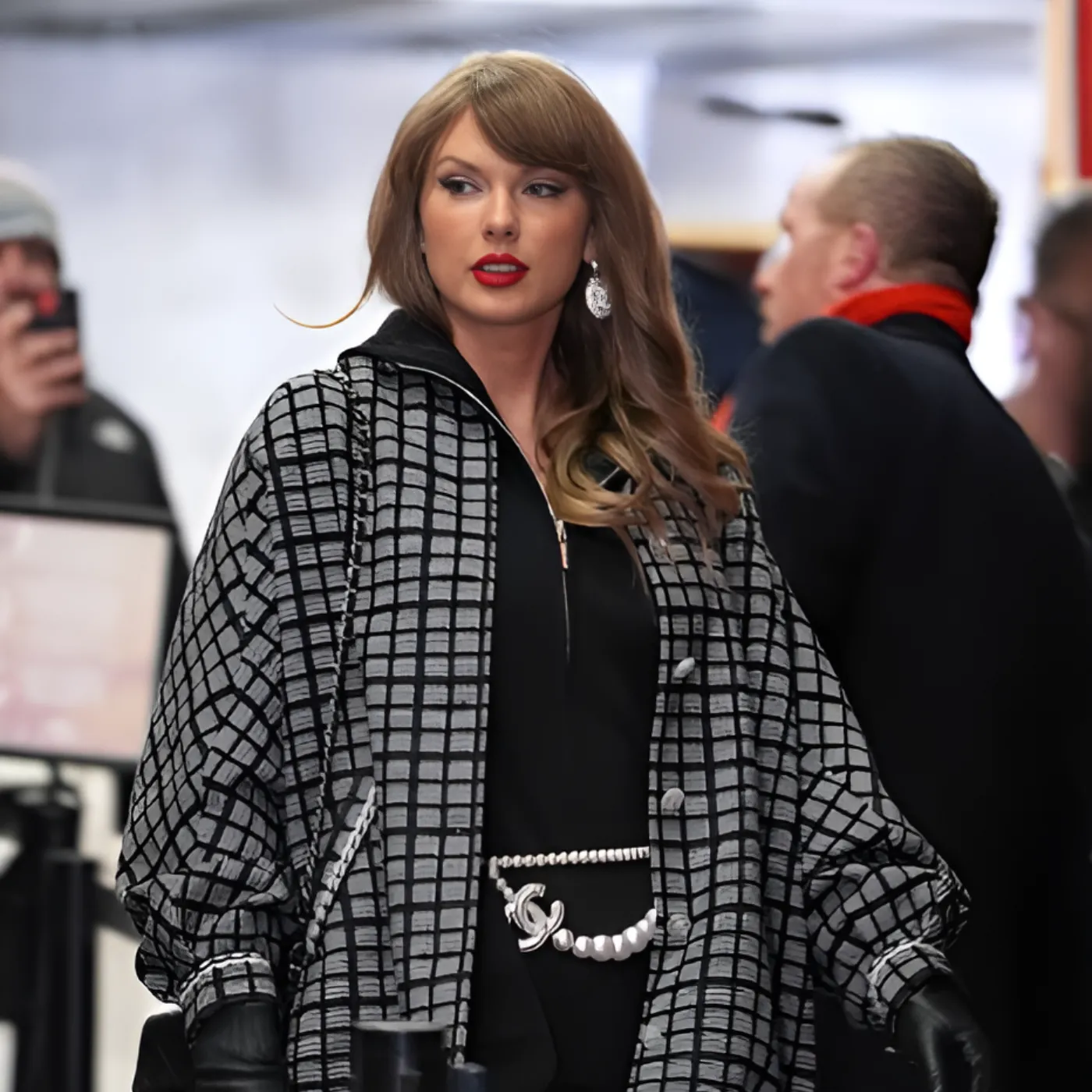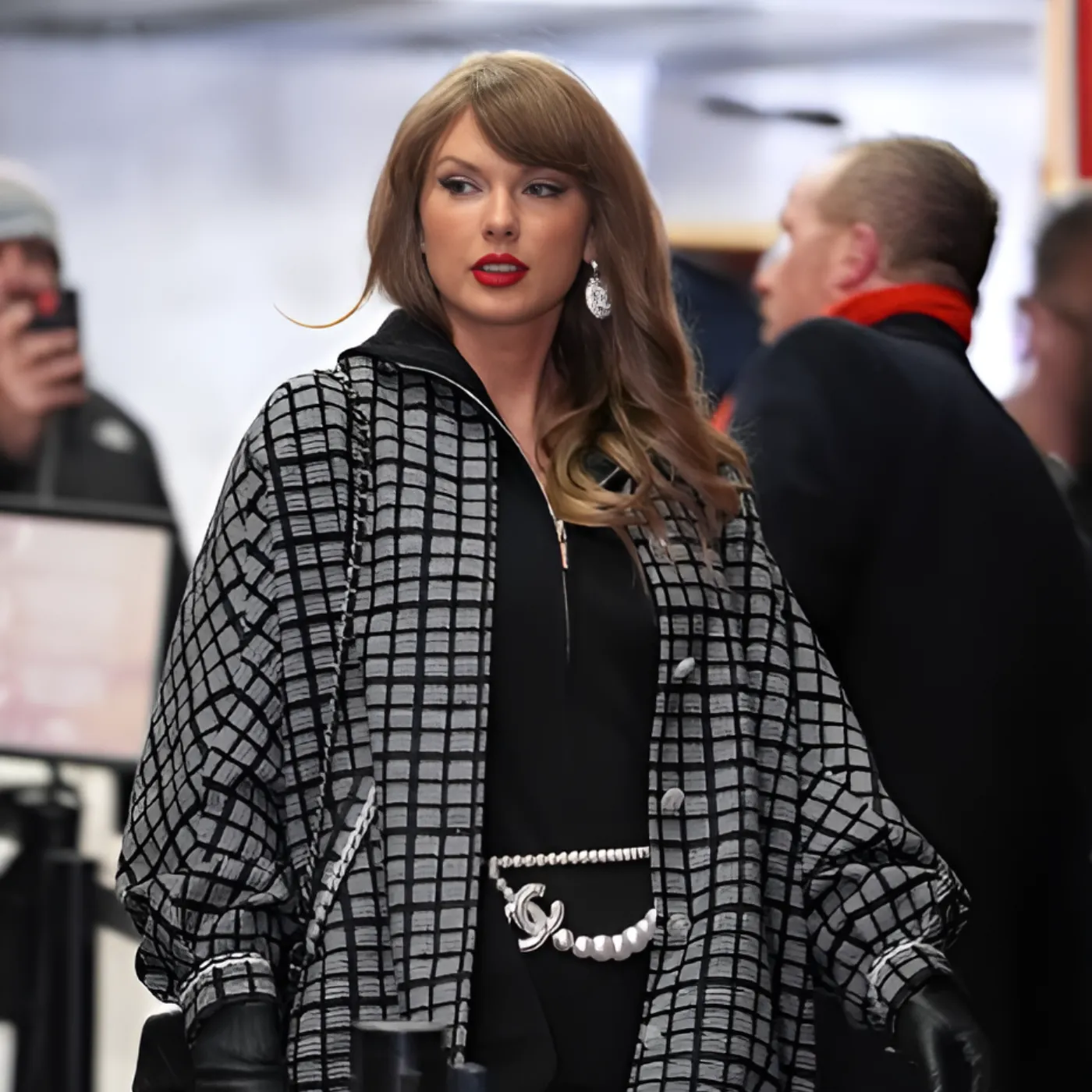

Five years of silence have been ordered in Taylor Swift’s life, exposing a secret story of obsession
Taylor Swift Wins Five Year Restraining Order Against Alleged Stalker
Pop superstar Taylor Swift has been granted a five year restraining order by the Los Angeles County Superior Court against a man accused of stalking her. The decision, made after months of legal proceedings, represents one of the strongest legal protections available to celebrities facing persistent harassment. The order requires the individual to maintain strict distance from Swift, her homes, and her workplaces, while also banning him from possessing firearms or protective gear such as bulletproof vests. This case underscores both the risks faced by high profile figures and the legal tools available to ensure their safety.
The Court’s Decision and Its Impact
The restraining order was issued against Brian Jason Wagner, a 45 year old man from Colorado. Swift’s legal team had originally sought protection in June, resulting in a temporary order. The recent ruling makes the restraining order permanent for the next five years. According to court records, Wagner must remain away from all of Swift’s properties, vehicles, and workspaces. He is forbidden from contacting her in any way, whether directly, indirectly, or through third parties. The ruling also prohibits him from owning or using any type of weapon.
Wagner reportedly did not appear at the Los Angeles hearing, leaving the court to issue its ruling based on the evidence presented by Swift and her representatives. For Swift, the decision provides a critical layer of security during a career in which unwanted attention from stalkers has been a recurring concern.

Allegations Raised by Taylor Swift
In her filings, Taylor Swift described troubling encounters with Wagner that spanned several months and showed signs of escalating behavior. She stated that Wagner once attempted to enter her property while carrying a glass bottle, raising concerns that it could be used as a weapon. Swift explained that this was not an isolated event but part of a pattern of behavior that had been ongoing.
Court documents note that Wagner showed up at Swift’s home on May 21 and May 22, 2024. While Wagner later claimed he had simply been visiting a friend, Swift’s team disputed this account and presented it as evidence of targeted harassment. Another disturbing allegation involved Wagner’s attempts to interfere with Swift’s mail. He allegedly tried to redirect her correspondence and even changed the address on his driver’s license to one of her properties. A member of Swift’s security detail, Alex Welch, discovered this when the license was mistakenly delivered to Swift’s home.
Swift’s filings also revealed that her team uncovered Wagner’s past incarcerations. Despite his time in prison, Wagner is alleged to have sent Swift letters describing himself as romantically connected to her and admitting to an obsession. These communications heightened fears for her safety and strengthened the case for legal protection.
Swift’s History with Stalking Incidents
This is not the first time Taylor Swift has had to seek legal protection from stalkers. Over the years, she has faced multiple cases of harassment and threats that forced her to involve the courts.
In 2014, Swift obtained a protective order against Timothy Sweet, who claimed that he was married to the singer. Court records from that case indicated that Sweet threatened violence against anyone who attempted to keep him away from her.
In another incident, Swift secured a restraining order against Daniel Cole, a man who had repeatedly appeared near her vacation property in Rhode Island. The order was granted after he was found loitering outside her home.
Perhaps the most extreme example came in 2018 with Frank Andrew Hoover, who allegedly threatened Swift’s family and sent alarming messages. Hoover was accused of planning to harm Swift and was eventually arrested in Texas. These prior incidents illustrate a longstanding pattern of security concerns that have followed Swift throughout her career, despite her efforts to maintain privacy and safety.
Recent Security Breaches and Legal Challenges
The restraining order against Wagner comes amid other troubling episodes in Swift’s orbit. On September 15, a court officer was detained after attempting to scale the fence of Travis Kelce’s residence in an effort to deliver legal documents to Swift. Kelce, a star athlete and Swift’s fiancé, was not harmed, but the incident drew attention to the continued risks posed by individuals attempting to bypass security to reach the singer.
Swift has also been pulled into unrelated legal disputes. She was recently requested to provide testimony in a public case involving Blake Lively and actor Justin Baldoni. While Swift has not commented publicly, the request demonstrates how her status as a global icon often places her in the center of legal and personal controversies that extend beyond her own actions.
How Restraining Orders Work for Celebrities
The five year restraining order granted to Swift highlights the importance of legal protections for celebrities who face repeated harassment. Restraining orders prohibit contact and physical proximity, giving law enforcement clear authority to arrest violators. For high profile individuals, these orders are essential because their fame attracts attention that can escalate into stalking.
In Swift’s case, the court also extended protections to cover weapons and protective gear, recognizing the seriousness of Wagner’s alleged behavior. By banning him from possessing items like firearms or bulletproof vests, the court eliminated potential tools that could have made confrontations more dangerous.
Restraining orders are not foolproof, but they provide a critical legal framework that allows security teams and police to act decisively if boundaries are violated. For someone in Swift’s position, they serve as both a deterrent and a safeguard.
The Broader Risks Faced by Public Figures
The Wagner case is part of a broader pattern of security risks facing celebrities in the digital age. Social media and constant public exposure make it easier than ever for individuals to fixate on famous figures. For stars like Taylor Swift, who command massive global followings, this exposure can attract not only supportive fans but also dangerous individuals who blur the line between admiration and obsession.
These risks often extend beyond direct encounters. Harassers may attempt to hack communications, intercept mail, or create elaborate delusions involving the celebrity. Swift’s case illustrates this, as Wagner allegedly attempted to manipulate official documents such as driver’s licenses and mail forwarding to connect himself to her life.
High profile figures must balance their careers in the spotlight with the need for personal safety. Swift’s repeated experiences with stalkers show how essential comprehensive security measures, including legal action, have become.

The Importance of Legal Victories for Taylor Swift
For Taylor Swift, the five year restraining order is more than a legal document; it is a declaration of her right to safety and privacy. Having faced multiple incidents over the years, Swift has learned the importance of being proactive in protecting herself. The court’s decision validates her concerns and empowers her security team to act quickly if Wagner violates the terms.
This victory also sends a message to other potential harassers. It demonstrates that Swift is prepared to pursue every legal avenue to protect herself and that the courts recognize the seriousness of her situation. By establishing a clear record of past threats and legal protections, Swift has built a framework that may deter future incidents.
What Comes Next for Swift
With the restraining order in place, Taylor Swift can now focus on her career and personal life with greater peace of mind. The order ensures that Wagner must keep his distance and provides authorities with the authority to act immediately if he attempts to reengage.
While Swift will undoubtedly continue to face heightened attention due to her fame, the legal protections and her history of taking such threats seriously put her in a stronger position to safeguard her future. For her fans, the decision serves as a reminder of the real dangers celebrities face behind the glamour of public life and the necessity of robust legal and security strategies.


















